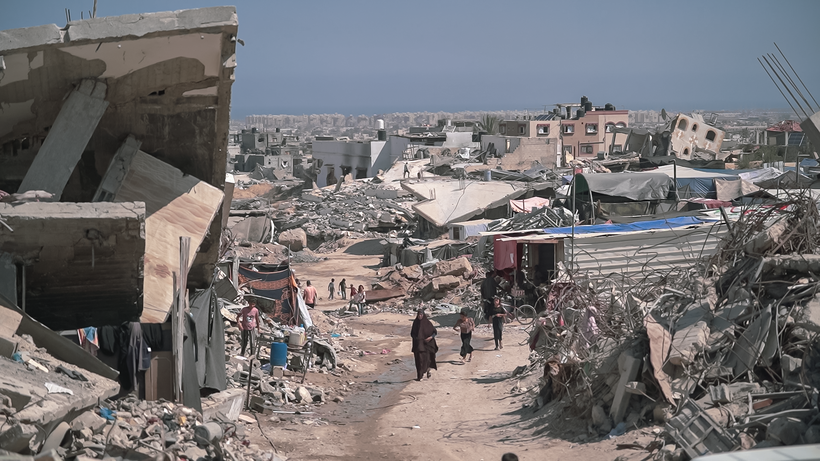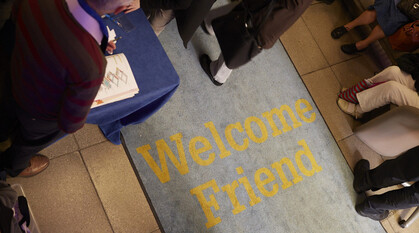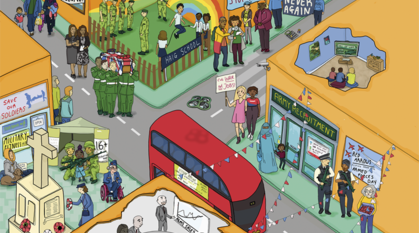Gaza, remembered
Remembering what has happening in Gaza also turns our thoughts towards the present and the future. Jonathan Lingham reflects on suffering, grief, hope, and work to be done.

On 4 November I, together with a few other Quakers, attended a service at St Martin-in-the-Fields in London organised by the British Palestinian Families Network. Its purpose was to ensure that what has happened in Gaza over the last two years will not be forgotten; and to start to shift attention towards what next.
Representatives of many faiths and none were present, and speakers included Sam Wells (the vicar of St Martin's); Husam Zomlot, the Palestinian Ambassador to London; Layla Moran (the first British MP of Palestinian heritage); Sayeeda Warsi, baroness; Frank Dabba Smith, lecturer on the Holocaust at Leo Baeck College; and Rehena Harilall, from the Plum Village Buddhist community. We heard music and poems, including from bereaved family members and children. We saw pictures. Together we prayed for the future.
Not much shocks me. A career which saw me working to underpin fragile peace processes in countries emerging from conflict has given me the resilience needed to cope with the sight of burned villages, communities torn apart, families displaced to tented encampments where some degree of safety can be provided by the international community.
I am shocked by the images I now see coming out of Gaza. The scale of the destruction in some areas is near total, way beyond anything I experienced in Mozambique, Angola, Sudan, or Sierra Leone. Homes, schools, hospitals, infrastructure reduced to rubble. And we know these images of physical destruction have been accompanied by nearly 70,000 recorded deaths, more than twice as many as those killed in the London Blitz. Nearly all of these were innocent civilians, 18,000 of them were children. Many of the Palestinians present last week had lost close relatives or friends in the war.
And we know the suffering continues.
Sadness and grief – and hope
Of course there were expressions of deep sadness and grief during the service – how could it be otherwise? But despite this my overarching impression was one of objectivity, not dwelling overly on history or personal tragedies. There was no anger, no hatred, no bitterness. Instead, the focus was on the future, and on hope. Hope particularly for the creation of durable structures that will bring long-term peace.
But alongside hope, there was clear realisation that a huge amount of practical support needs to be provided. At the political level, what can be done to support processes of reconciliation and turn the current, very shaky, ceasefire into a more permanent peace? Who will provide the continuing humanitarian response for a population many of whom have lost everything? And what is needed to start the process of reconstruction, rebuilding homes and lives and livelihoods?
According to the UN over a quarter of a million homes have been damaged or destroyed. The task ahead is immense, probably greater than anything that has been seen for 80 years. And, sadly, the process won't be helped by continuing tensions and disagreements amongst the main international players, continuing violations of internation law, and by political rivalries between factions within Gaza itself.
How I can help
The UK government's recognition of the State of Palestine has been welcomed by Quakers as an important first step, as it acknowledges the inalienable right of the people of Palestine to live on their own land and be governed by their own people.
But much more needs to be done, on the political, diplomatic, and humanitarian front. I shall be writing to my MP (again) pleading that the government does not shy away from its responsibilities. And I shall be looking for ways to reach out to all those communities in the UK with strong connections to both Palestine and Israel to encourage greater understanding between them.
Can we learn to love? Can we at least learn how not to hate?


